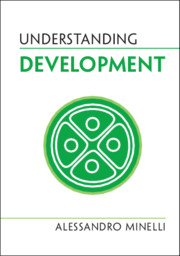Book contents
- Understanding Development
- Series page
- Understanding Development
- Copyright page
- Reviews
- Dedication
- Contents
- Foreword
- Preface
- Acknowledgements
- 1 Defining Development, if Possible
- 2 Cells and Development
- 3 Development as the History of the Individual
- 4 Revisiting the Embryo
- 5 Developmental Sequences: Sustainability versus Adaptation
- 6 Genes and Development
- 7 Emerging Form
- 8 The Ecology of Development
- Concluding Remarks
- Summary of Common Misunderstandings
- Classification
- References and Further Reading
- Index
6 - Genes and Development
Published online by Cambridge University Press: 29 April 2021
- Understanding Development
- Series page
- Understanding Development
- Copyright page
- Reviews
- Dedication
- Contents
- Foreword
- Preface
- Acknowledgements
- 1 Defining Development, if Possible
- 2 Cells and Development
- 3 Development as the History of the Individual
- 4 Revisiting the Embryo
- 5 Developmental Sequences: Sustainability versus Adaptation
- 6 Genes and Development
- 7 Emerging Form
- 8 The Ecology of Development
- Concluding Remarks
- Summary of Common Misunderstandings
- Classification
- References and Further Reading
- Index
Summary
The popular description of development as the actualization of a genetic programme fails to acknowledge both the complexity and the flexibility of developmental systems. The events that occur during any developmental phase or process are characterized by variations in the expression of a number of genes that often amount to an important percentage of all protein-coding genes. However, in the genome there are not specific genes for specific phenotypic traits or master control genes responsible for the production of a major organ such as heart or eye, and there would be no gene expression were it not for the whole machinery of the cell. Furthermore, all developmental processes take place in a specific environmental context that influences the expression of genes; sometimes, environmental differences can cause individuals with the same genome to develop into very different phenotypes, for example male and female. Genes expression relevant to development is not limited to the embryonic phase. The whole organism does not always develop as a tightly integrated system. One organism does not necessarily contain only one genome.
Keywords
Information
- Type
- Chapter
- Information
- Understanding Development , pp. 95 - 112Publisher: Cambridge University PressPrint publication year: 2021
